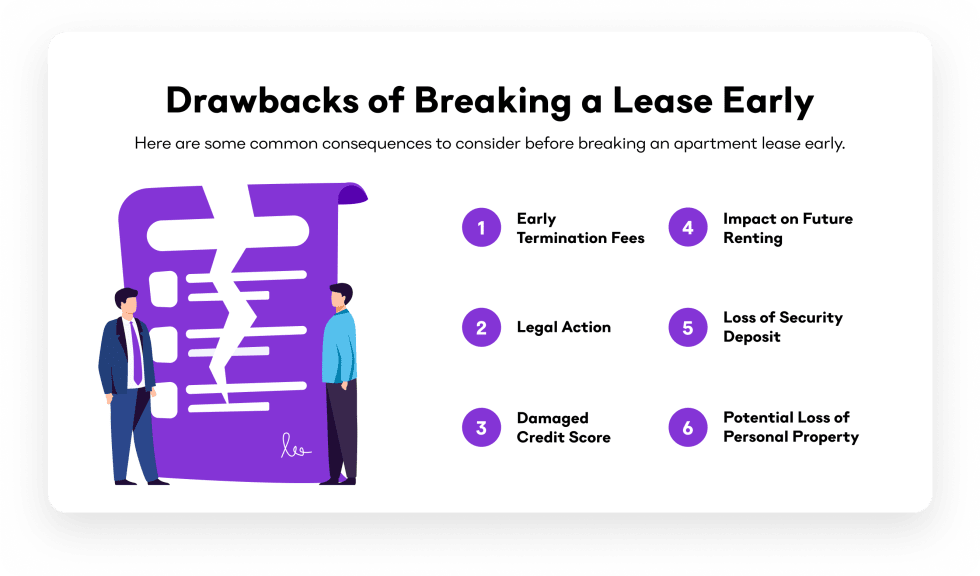What Happens if You Break a Lease? Understanding Your Options
What Happens if You Break a Lease? Understanding Your Options
Blog Article
The hire market is definitely moving, with an increase of renters than ever rethinking their residing situations. Searches around “can you get out of a lease early” soared by around 70 per cent within the last few year alone, reflecting a definite trend. Whether it is a work modify, unexpected economic difficulties, or a relationship shift, your choice to break a lease isn't anyone to get lightly. Understanding the important facets at enjoy can help you save from unexpected financial and legal headaches.

Early Terminations on the Rise
A recent examination across major US towns unmasked that approximately 18 % of tenants contemplate breaking their lease before the full expression ends. This mirrors broader improvements in employment, life style, and even emotional wellness priorities. Knowledge also shows that younger renters, particularly those aged 18 to 34, are probably the most likely to produce a move mid-lease. If you are in that group, you are not at all alone.
Financial Penalties Prime the Record
The most immediate concern visitors have is the financial impact. Study effects suggest that 65 per cent of landlords cost some type of early firing charge, that may add the cost of a single month's rent to the sum total rent left on your agreement. About 28 percent of renters surveyed said they underestimated these prices, leading to shock costs that collection right back their budgets.
Hidden Costs and Other Expenses
It's not just about firing fees. Some landlords also withhold security deposits or demand for re-listing the property. Normally, renters may lose yet another 20 percent of these deposit if the apartment requires cleaning or fixes following an early on exit. Understanding these results can assistance with choice making before offering notice.
Legitimate and Credit Consequences
Breaking a lease can follow you in more ways than one. Almost 22 percent of visitors who shattered their leases without settling described a indent with their credit report. Landlords may deliver your unpaid amounts to collections, making it tougher to book elsewhere or secure loans. Furthermore, being sued for unpaid rent is just a real, if less common, risk.
Appropriate Factors and Negotiations
Not all lease pauses are treated equally. The absolute most generally acknowledged factors include wellness and protection violations, military implementation, or significant home injury from activities like natural disasters. More than half of tenants polled successfully negotiated using their landlords for a diminished charge or simpler terms if they presented paperwork for such reasons.
The Transmission Element
Data suggests that renters who proclaimed early and openly making use of their landlords could actually save an average of 35 percent on penalty costs. Placing objectives, sharing documentation, and arranging for an alternative tenant may all reduce the fallout. The sooner you start the discussion, the higher your chances to reduce fees and protect your credit score.
What the Tendencies Tell Us
Lease-breaking is actually trending upward. However, the risk of sudden charges and legitimate trouble stays large for many who don't approach ahead. Reviewing your lease contract, understanding the great print, and seeking legal services if required are wise first steps.
Examining lease-breaking data will give renters a clearer photograph of what's at share, making it easier to weigh their possibilities and prevent financial missteps. Being organized and practical changes what is actually a key setback right into a well-managed transition. Report this page